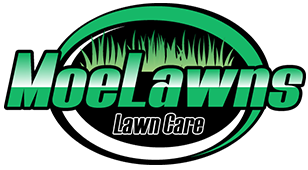Milton, Georgia, nestled in the heart of Fulton County, is known for its picturesque landscapes and charming rural atmosphere. However, like any area, Milton is not exempt from the persistent presence of common weeds that can thrive in its diverse soil and climate conditions. These uninvited plants often make their way into gardens, lawns, and open spaces, competing for resources and posing challenges to local residents and landscapers. We at Moe Lawns would like to share the common weeds in Milton, GA.
Dandelion (Taraxacum officinale)
One prevalent weed in Milton is the notorious dandelion. Despite its vibrant yellow flowers, many consider it a nuisance due to its ability to spread rapidly. Dandelions are resilient and can take root in various soil types, including the fertile grounds of Milton. Their wind-borne seeds contribute to their widespread distribution, making them a common sight in lawns and gardens.
Wild Violet (Viola sororia)
Another common weed in Milton is the wild violet. This low-growing plant often invades lawns, creating patches of purple amidst the green grass. Wild violets are persistent and can be challenging to eliminate, as they reproduce through seeds and rhizomes. Their ability to thrive in shaded areas makes them a common adversary for homeowners trying to maintain lush, uniform lawns.
Creeping Charlie (Glechoma hederacea)
Creeping charlie is yet another weed that troubles residents in Milton. Also known as ground ivy, this aggressive creeper forms dense mats that smother desirable grasses and plants. Its rapid spread can be attributed to its ability to root at nodes, creating new plants along its creeping stems. The heart-shaped leaves and small, trumpet-shaped flowers may seem innocent, but controlling creeping Charlie can be a persistent challenge.
Crabgrass (Digitaria spp.)
Milton’s warm climate and well-drained soils provide an ideal environment for crabgrass to flourish. This annual grass weed germinates in the spring and quickly spreads throughout lawns, competing with established grasses for sunlight, water, and nutrients. Effective control measures often involve pre-emergent herbicides applied early in the season to prevent germination.
Goosegrass (Eleusine indica)
Milton residents also contend with the invasion of goosegrass. This grassy weed is particularly troublesome in compacted soils and areas with poor drainage. Identified by its coarse texture and distinctive seed heads, goosegrass can quickly take over lawns and disrupt the uniform appearance that homeowners strive to maintain.
Lawn Maintenance in Canton, Alpharetta, Cumming & Milton, Georgia
Sticky weed is common burweed in Georgia that germinates in the fall and starts a rapid growth cycle in the early spring while Henbit (Lamium amplexicaule) is an undesirable purple weed primarily due to its aggressive growth habits and its potential to form dense patches in lawns. To tackle these common weeds in Milton, residents often adopt a combination of cultural practices, such as regular mowing and proper watering, along with targeted herbicide applications. Additionally, promoting healthy, well-fertilized lawns helps to create an environment where desirable grasses can outcompete and minimize the impact of invasive weeds. While Milton, Georgia, boasts a serene and idyllic landscape, it is not immune to the challenges posed by common weeds. Residents must stay vigilant and adopt proactive measures to keep these invasive plants at bay, ensuring that the beauty of Milton’s natural surroundings remains unmarred by the persistent presence of unwelcome flora. Call Moe Lawns to help combat weeds in your lawn and yard.



